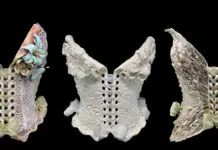One of the best days in the life of Super Bowl veteran Jim Riley was the day his wife told him to stop drinking or get out.
“That was my wife. Thank God for her,” Riley, 67, says. He was recalling the day in July 1985 when his wife, Robin, told him she had had enough.
Before that dramatic day, Riley had already seen some pretty good days. Like the day in 1965 that he was named to the Coaches’ All-American football team while playing under legendary coach Bud Wilkinson at the University of Oklahoma. Or the day he was a second-round draft pick for the Miami Dolphins, for whom he played defensive end from 1967 to 1973, including on the Dolphins perfect 17-0 1972 season. Or Jan. 16, 1972, when Riley earned his Super Bowl ring.
During his first 40 years, Riley had many good days, but most of them took place on a football field. Off the field was another story. “Drugs and alcohol had me by the throat,” Riley says. Finally, Robin couldn’t take it any more.
Robin had already divorced Jim once. The Rileys had married for the first time after his rookie year with the Dolphins. She was a 19-year-old Enid girl; Riley had begun his football career with the Enid High School Plainsmen.
A good-looking pro football player with money and fame must have seemed like quite a catch to the teenage girl. Riley was a big shot, and he lived like one, including the booze, drugs, partying and promiscuity that often came with the lifestyle. His behavior led to divorce three years and one child into their marriage.
Riley begged for another chance, and they remarried. But when a knee injury ended his football career and he struggled to define himself off the field, Riley returned to drugs and alcohol. Finally, Robin gathered together some relatives and close friends for an intervention. She gave Riley an ultimatum: Get sober or get out.
“I was in shock,” Riley recalls.
At the intervention, Riley’s old Enid High coach, Harvey Griffin, told him, “You have embarrassed me, and you have embarrassed yourself.” The coach had tears in his eyes, Riley remembers.
Riley’s son, Blake, and daughter, Marcie, also pleaded with him. “My little girl, Marcie, she was 11 at the time, she said, ‘Daddy, I love you. I don’t want you to die. I want you to stop drinking.’”
Riley checked into a treatment center the same day. This past July, he celebrated his 27th year of sobriety.
Having broken the chains of his own addictions, Riley threw himself into helping others enslaved to drugs and alcohol. Less than two years after receiving treatment, Riley and Robin had established Jim Riley Outreach. The nonprofit, based in Edmond where the Rileys reside, helps people move from addiction to recovery.
The Outreach operates four “mentoring homes,” which can house up to 29 people. Two things that distinguish Riley’s approach to recovery is the length of time he wants residents to stay and the ultra-strict environment he insists upon.
Riley recommends three months of in-patient treatment followed by at least nine months in residential mentoring. Many residents have stayed more than a year. “Some people think that’s too long … (but) the guys who have stayed with us a year or longer, when we go back and keep track of them, 84 percent of them are still doing well.”
The homes have strict rules, such as a 10 p.m. curfew and a ban on tobacco use. “We are very strict,” Riley says. “Extremely strict. Some people think we are too strict, and I say, ‘Good! Thank you!’”
Those who are willing to submit to strict rules tend to mean business, meaning that when someone comes to an Outreach home, he or she will be among “winners.” Riley has some simple advice for people in recovery: “Stick with the winners, stay away from the losers – and you’ll know which ones are which.”
An intervention turned his life around, but Riley hesitates about recommending interventions to others. He believes the only way interventions work is when loved ones are ready to take the same hard stand Robin took with him: Get treatment, get sober or get out of my life. Many families are not ready to communicate that message, Riley says.
Five years after Riley achieved sobriety, his son Blake died in an auto accident at age 20. Neither alcohol nor drugs were involved. A few months before the tragedy, Riley had made a pact with his son. The pact was Blake’s idea.
“Dad, I want to make a deal with you,” he told his father. “I promise you I will never touch another drop of alcohol as long as I live, as long as you don’t.”
Jim Riley Outreach is a Christian ministry. Riley believes death is not the end. “I will see him again,” he says.
And when he does, Jim Riley looks forward to telling his son that he has kept his end of their deal.

























